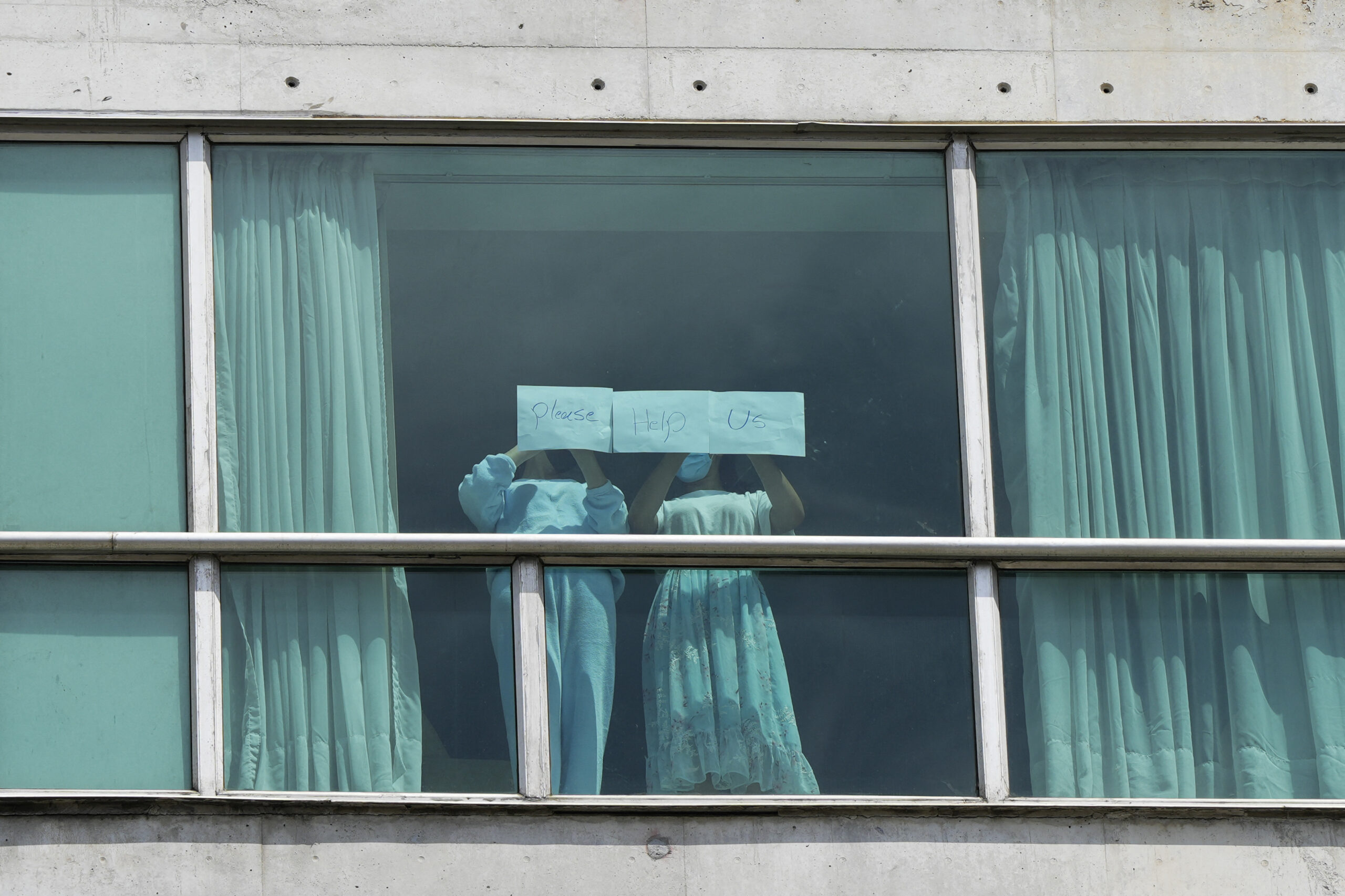
I went to Panama recently to talk to people the Trump administration had deported there. People are normally deported to their home countries, but none of the 299 people expelled in February were Panamanians. They came from Iran, Russia, China, Eritrea, Cameroon, Afghanistan, and other countries with serious human rights problems. Held for weeks in incommunicado detention, 180 opted to return to their home countries, but their repatriation can hardly be called voluntary. We interviewed 48 of the people who refused to go and are now stuck in limbo in Panama.
One of them was 28-year-old Sara (a pseudonym), who fled abuse in Iran and turned to the United States out of desperation and hope, only to have her dreams of freedom and safety dashed and her trauma deepen.
She is a Christian convert from a country where converts to Christianity are subjected to serious human rights violations and can even be sentenced to death and where the authorities consistently fail to protect women against violence. After fleeing from Iran to Turkey, her father and uncle pursued her there; she felt she had no choice but to flee Turkey.
ARNULFO FRANCO/AFP via Getty Images
The only country willing to give her a tourist visa was Brazil, where she had no connections or familiarity. She traveled through the dangers of the Darién Gap northward to Mexico. There, she made an appointment to apply for asylum in the United States using CBP One, a phone application established by U.S. Customs and Border Protection to provide people like her a safe, orderly, and legal pathway to seek asylum.
She showed me her appointment slip for 4:30 pm on January 31, 2025, at the Nogales, Arizona port of entry. She could have tried crossing the border without permission before President Donald Trump‘s inauguration, but she waited, as she was promised, to enter legally.
On Jan. 20, by executive order, Trump cancelled her appointment, and shut down CBP One. That same day a flurry of executive orders closed down refugee resettlement and other regular pathways for protection. Trump proclaimed an “invasion” of “illegal aliens” at the southern border, claiming authority to explicitly exclude people from the right to seek asylum if doing so would permit their continued presence in the United States. Trump’s proclamation purports to cancel the asylum provision in U.S. law, which guarantees the right to seek asylum to anyone arriving at the border regardless of their status or method of arrival.
She did not want to cross the border without permission but reluctantly made the decision to cross irregularly on February 4 as the only possible way to seek asylum in the United States. She did not try to evade capture but waited on the other side of the wall for the Border Patrol. The agent handcuffed her and put her on a bus. She kept waiting for the chance to tell any official her story.
“No U.S. official at any point asked me any questions,” Sara told Newsweek. “I had no interview in the United States. I talked to no lawyers, no officials. I was given no document to sign. I wanted to become a refugee, but they never talked to me.”
The Border Patrol detained her in San Diego. She was told she was being transferred to Texas, but was ushered onto a military plane, which landed in Panama five hours later.
The next three weeks were a nightmare—a week of incommunicado detention in a hotel in Panama City, where a U.N. agency told her that her only option was to return “voluntarily” to her home country, followed by two weeks in a sweltering, filthy detention center back in Darién, then suddenly bused back to Panama City, dumped on the streets, and told she had 30 days to leave the country. The permit has since been extended for another 60 days; she remains in Panama, but the clock is ticking.
Despite their varied backgrounds, all of the people interviewed had this in common—each had crossed into the United States after January 20; all wanted to seek asylum in the U.S. and expressed to us a fear of return to their home countries; none had an asylum pre-screening “credible fear” interview; none saw an immigration judge or were given so much as a slip of paper saying why and under what legal basis they were being removed from the United States; in fact, none knew they were being sent to Panama.
The U.S. Supreme Court has ruled that the Trump administration should “facilitate the return” of a man wrongfully deported to El Salvador. But there are at least hundreds of others, among them the 299 sent to Panama and 200 to Costa Rica, who have been deported without basic due process and denied the right to seek asylum. The U.S. should also facilitate the return of the young woman I interviewed and make good on her long overdue appointment.
Bill Frelick is the director of Human Rights Watch Refugee and Migrant Rights Division and the author of an upcoming report on the expulsions.
The views expressed in this article are the writer’s own.
